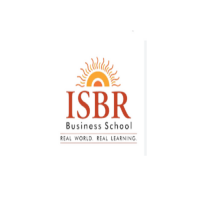MCom Admission: Your Path to Expertise in Commerce & Management

Strong 8k brings an ultra-HD IPTV experience to your living room and your pocket.
Studying for a Master of Commerce (MCom) represents a fundamental academic pursuit for people who wish to expand their knowledge base in commerce alongside finance and related topics. The advanced curriculum expands your understanding while creating various professional opportunities in the public and private sectors. Aspiring candidates need extensive knowledge of MCom admission procedures and MCom degree organisational patterns.
Understanding the MCom Course
The MCom course is a two-year postgraduate programme that delivers complete commercial and economic knowledge through its curriculum. The curriculum covers advanced subjects in accounting, finance, taxation, business law and management. The programme benefits college graduates who previously studied commerce or similar subjects because it provides opportunities for in-depth concentration.
Importance of an MCom Degree
The Master of Commerce (MCom) degree creates substantial value in current job markets because it enables professionals to pursue careers in finance, banking, and taxation, together with business analytics. The programme delivers distinct expertise in corporate governance, investment banking and risk management topics that international and national markets greatly value.
Benefits of Pursuing an MCom Course
- The industry makes well-compensated positions available to MCom graduates, specifically in taxation and finance.
- Organisations, banks, and financial institutions specifically search for MCom graduates because they need their financial management abilities.
- The MCom degree has international recognition, enabling students to become employable in foreign professional opportunities.
- MCom establishes fundamental knowledge students can use to pursue research-based careers by pursuing a PhD in Commerce or Finance.
Eligibility Criteria for MCom Admission
For MCom admission, candidates need to meet the specified academic criteria:
- The candidate needs to graduate from a university-authorised commerce (BCom) or BBA, BBM or economics programme.
- Students must achieve between 50% and 55% of the total points (this may differ across universities).
- Public institutions normally test students with entrance examinations or conduct individual interviews to determine admission eligibility.
Specialisations in MCom
Students pursuing an MCom degree find various specialisation areas which help them achieve their career-focused educational goals. MCom features various specialisations, primarily among them:
- Accounting and Finance: This course covers advanced accounting principles, financial management, and investment strategies.
- Marketing: Focuses on marketing strategies, consumer behaviour, and market research techniques.
- International Business: Explores global trade, international finance, and cross-cultural management.
- Economics: Delves into economic theories, econometrics, and policy analysis.
- Taxation: Provides direct and indirect taxes, tax planning, and compliance expertise.
- Human Resource Management: Develops skills in personnel management, organisational behaviour, and labour relations.
MCom Admission Process
Students follow this standard order when applying for admission to a university:
- Candidates must submit their applications by using the official university website alongside designated admission portals.
- Colleges administer specific entrance examinations called DUET, PU CET or state-level examinations, which candidates must take.
- Numerous educational establishments grant admission to students by evaluating their previous academic achievement in undergraduate studies.
- If candidates obtain shortlisting, the university may organise personal interviews and group discussions as part of the selection process.
- Acceptance of Final Admission: The university provides official confirmation of enrollment followed by the necessary enrollment steps to all selected students.
Career Opportunities After MCom
The completion of an MCom course enables students to open diverse career options in the following domains:
- Chartered Accountant (CA) or Certified Management Accountant (CMA): MCom serves as a pathway for students seeking Chartered Accountancy (CA) licensing as well as Certified Management Accountancy (CMA) certification or Association of Chartered Certified Accountants (ACCA).
- Banking & Finance Sector: The Banking & Finance Sector uses graduates of Master of Commerce to fill positions in investment banking, wealth management, and commercial banking.
- Tax Consultancy: The profession of tax consultant includes advising businesses and individuals in tax matters along with GST consulting services.
- Teaching & Research: A career path in commerce and business studies leads to becoming either a professor or lecturer who conducts teaching and research.
To Wrap it Up!
It offers its students pathways to advanced career opportunities in commerce, finance, and business management after completing an MCom degree. Comparing and contrasting economic principles, financial systems, and corporate strategies further deepens the understanding of financial systems, economic principles, and corporate strategies to make graduates very valuable in the job market. A big deal in choosing the right specialisation and institution is related to career prospects, this is because it decides how much you get to have industry experience and how much expertise you would become an expert in. An MCom programme is structured learning/ practical training/real-world applications that assist students in developing analytical, managerial and problem-solving skills that enable them to excel in diverse professional roles.
Note: IndiBlogHub features both user-submitted and editorial content. We do not verify third-party contributions. Read our Disclaimer and Privacy Policyfor details.


